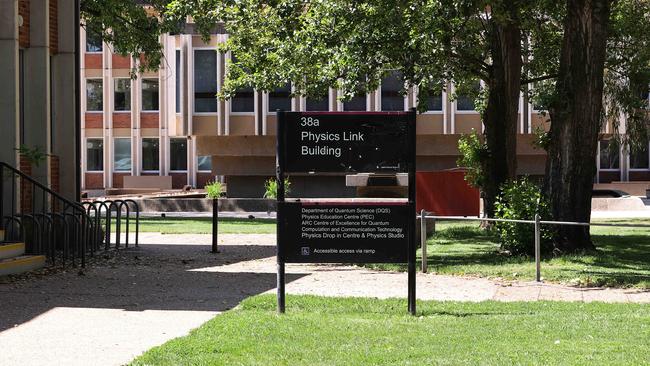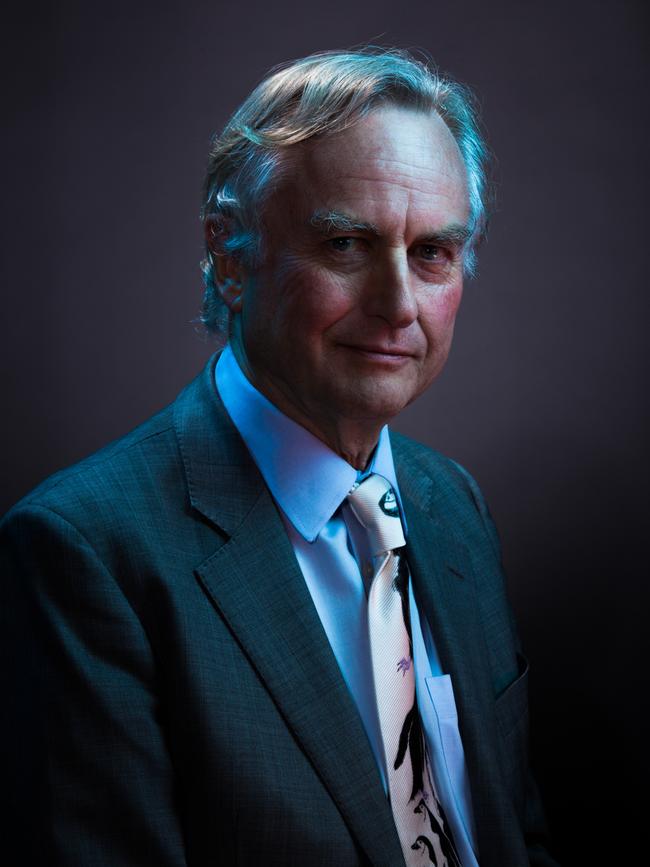
This nihilistic outlook was originally promoted by a small group of academics in the mid-20th century, but is now the dominant philosophy in a range of disciplines from literary criticism to gender and cultural studies. And while the doctrine has quietly swallowed the humanities, many thought it would never infiltrate the hard sciences. If one is engineering a bridge, for example, it would be reckless to reject the objective truth of gravity. If one is studying mathematics it would be foolish to deny that 2 + 2 = 4.
Yet the notion that postmodernism would stop at the walls of the hard sciences looks naive in retrospect. In recent years, efforts to “decolonise” the sciences have been successful in New Zealand with Maori “ways of knowing” to be taught alongside chemistry, physics and biology in science classrooms. Commenting on the New Zealand policy, evolutionary biologist Richard Dawkins has described it as “pernicious nonsense”.
To understand Dawkins’ ire, it’s worth digging a little deeper into what “decolonising science” actually means. It is an outgrowth of a larger push to “decolonise knowledge” inside the universities. Academics leading this movement explicitly reject the notion there are objective facts that can be discovered via rational or scientific inquiry.
And, rather than being a method to discover how the world works, such theorists argue Western science has been used as a tool to subjugate others. Efforts to “decolonise” science are therefore efforts to undo this subjugation, by bringing into the fold other “ways of knowing” that exist outside scientific methodology. These might include local knowledge about land management, religious knowledge about cosmology, or traditional ways of healing.
Writing in The Conversation, academic Alex Broadbent, of the University of Johannesburg, argues: “There is African belief, and European belief, and your belief, and mine – but none of us have the right to assert that something is true, is a fact, or works, contrary to anyone else’s belief.”
But if we are to treat this claim seriously it takes us to some interesting destinations. It would mean ignoring modern medicine in favour of traditional healing practices when treating cancer or heart disease. It would mean denying the laws of physics that allow planes to fly safely, based on myths about human flight. And it would mean disregarding engineering standardsfor building safe bridges, roads and buildings, because such standards derive from colonial methods.
Of course, this would be highly impractical. In the real world, we do not recognise the opinions of flat-earthers are equal to those of astronauts, or the knowledge of a psychic is equivalent to an oncologist. We recognise that while everyone is deserving of respect and dignity, not all opinions – or indeed “ways of knowing” – are equal in standing. But recognising the validity of science does not mean we cannot respect or study Indigenous culture. A deeper understanding of non-Western cultures is important – and we have an entire academic discipline devoted to just that. Anthropology exists to study the practices, cosmologies and knowledge systems of Indigenous populations.

Yet decolonial thinkers will argue that by isolating the study of Indigenous ways of knowing the anthropology department is itself a form of oppression.
From their perspective, knowledge grounded in spirituality and folklore should not be seen as mere cultural artefacts, but as being equal to physics, chemistry and biology. Decolonial activists reject the hierarchy that places scientific rationality above superstition and intuition.
Australia is not immune to this line of thinking, and neither are the hard sciences at our most prestigious institutions. The Australian National University’s Mathematical Sciences Institute this month released a press statement about a special topics course in Indigenous mathematics. Course convener Rowena Ball is quoted as saying “Indigenous and First Nations peoples around the world are standing up and saying: ‘Our knowledge is just as good as anybody else’s − why can’t we teach it to our children in our schools, and in our own way?’.” The press release also states that “Numbers and arithmetic and accounting often are of secondary importance in Indigenous mathematics”.
What are some forms of Indigenous mathematics? The example given by Ball is directions in smoke signalling. “One interesting example that we are currently investigating is the use of chiral symmetry to engineer a long-distance smoke signalling technology in real time,” she says. Theory and mathematics in Mithaka society were systematised and taught intergenerationally. You don’t just somehow pop up and suddenly start a chiral signalling technology. It has been taught and developed and practised by many people through the generations.”
Commenting on her assertion that smoke signalling is a sophisticated form of mathematics, Jerry Coyne, a professor of evolutionary biology at the University of Chicago, said bluntly: “I don’t find this at all convincing … patterns of smoke, like drumbeats, is a kind of language, and how to make the patterns and get them understood correctly is based on trial and error. Where does the math come in?”
In establishing a special topics course for Indigenous mathematics, the ANU is trying to serve two masters. On the one hand, universities such as ANU want to portray themselves as vanguards of social justice, in an attempt to attract students and placate activist staff. Yet on the other hand, these same institutions seek to justify collecting public funding and student fees on the premise that they provide a rigorous and substantive education.
But herein lies the irony – by indulging the decolonial activist agenda that rejects the existence of objective truths or a hierarchy of knowledge, universities undermine the very premise on which society deems them worthy of public funding. If we accept the decolonial notion that no form of knowledge can be deemed superior to any other, then what exactly are students paying for? What specialised skills or benefits do university graduates gain that non-graduates lack?
The contradiction is that the university as an institution exists solely because certain forms of systematised knowledge were historically elevated above others and deemed worthy of dedicated study, preservation and expansion. So why should the public continue to fund these multibillion-dollar organisations if the knowledge they offer is just as valid as any other “way of knowing”?




In universities across the world, humanities departments have, over time, come to reject the notion that there is such a thing as objective truth.